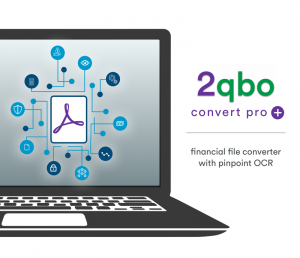There is one thing for sure, everyone has been adversely affected in some way by Covid-19. Today on the Rules of Thumb blog from MoneyThumb we will investigate how this pandemic has affected the merchant cash advance market. In an interview by DeBanked.com with Gunes Kulaligil, co-founder of Methodical Management, a New York-based firm providing valuations, transaction advisory, and due diligence services to lenders and investors active in the specialty finance sector, the following was discovered:
Unfortunately, Covid-19 and the subsequent shutdowns of businesses and people out of work have redefined what “off the charts” means for unemployment claims and other leading economic indicators. When it comes to the merchant cash advance market the preliminary impact of the lockdown over traditional funding avenues can be seen more clearly due to the fact that when incomes and revenues are disrupted, consumers and businesses will often prioritize which debt to take care of first. They may be unwilling to pay certain accounts, even if able to do so, in order to preserve cash for prolonged uncertainty. This is not the case for the merchant cash advance market as payments are remitted automatically; therefore, the cashflows are aligned with and reflect true business performance free of the impact of paid prioritization. These facts have made examining the effect of Covid-19 on the merchant cash advance market much easier.
As early as the second half of March, payments from merchants drop approximately 20% to 30%. In addition, the payment pace continued to decline in April and May. At the same time, merchant cash advance lender's portfolios look worse as performing loans are paid down and a lack of new loans results automatically in their portfolios having more risk.
While the immediate outlook is grim, a lot of relief and stimulus is working its way through the economy. The U.S. Government is intent on providing support as states are starting to re-open as quickly and as safely as possible. In retrospect, nobody had a pandemic playbook and programs like PPP were designed, deployed, and funded on the fly with collaboration from both banks and non-bank lenders during volatile markets.
Non-bank lenders’ success in being able to reach truly small businesses, as well as the speed and efficiency in deploying the funds, has not gone unnoticed. The PPP experience also highlighted stark differences between the types of clients that large commercial banks serve versus those served by non-bank lenders. As deBanked reported, banks focused on larger clients whereas non-bank and fintech lenders assisted much smaller businesses in comparison. Origination fees on PPP loans were not insignificant either. SBA pays PPP lenders a 1% to 5% origination fee depending on the funded amount. For example, Ready Capital reported gross revenue of $100 million on $2.1 billion funded. Notably, Ready Capital’s average PPP loan size was approximately $70,000 compared to an average of more than $500,000 for JP Morgan Chase for approximately $15 billion the bank funded in round one of PPP.
Small business activity is not only a leading indicator of distress but also at the center of any significant economic recovery. Small businesses account for 45% of GDP with 88% of these businesses employing fewer than 20 people. There is no meaningful recovery without small businesses getting back on their feet. As businesses re-emerge, their financing needs will vary widely in timing, amount, frequency, term, etc. depending on industry and many other factors. Continued involvement from the federal government whether in the form of deploying more low-interest rate loans, forgivable loans, or loans with some sort of guarantee is likely.
In conclusion, it is looking like in the long term, the merchant cash advance market will most likely fare better overall than traditional lenders. Merchant cash advance lenders who can continue to serve their clients either by extending a suite of private credit or by facilitating the deployment and servicing of government funds will succeed.





















Add comment